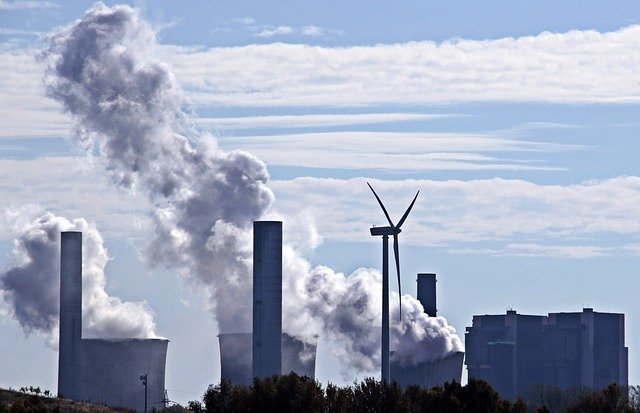ESG
EXCLUSIVE: Edmond De Rothschild Disappointed With COP29 Results

After two disappointing years, Jean-Philippe Desmartin, head of responsible investment at Edmond de Rothschild Asset Management, was again disappointed with the outcome of the 29th United Nations Climate Change Conference (COP29), after it ended in Baku, Azerbaijan, in November.
Despite a breakthrough being made on the first night of the talks on carbon trading, Jean-Philippe Desmartin at Paris-based Edmond de Rothschild Asset Management, said he was disappointed but not surprised with the outcome of COP29, dubbed the “finance COP.”
Representatives of countries at COP29 gave the go-ahead to carbon credit quality standards which are needed to launch a UN-backed global carbon market that would fund projects for cutting greenhouse gas emissions such as forest conservation. But Desmartin told this news service in an interview that he was quite cautious about how it would work as carbon trading has been a disaster for the past 10 years and it is “a very small achievement.”
Conference representatives also agreed on a new climate finance target of at least $300 billion per year from the developed world by 2035 to help developing countries deal with climate change. It replaces the $100 billion per annum commitment set in 2009. This was a compromise criticised by some developing countries, such as India, which believes that at least $1.3 trillion per year by 2035 is needed. But Desmartin believes that the agreement was a step forward, although the amount could have been higher if countries like China, which is still considered an emerging market, contributed. “$300 billion is quite good given the deficits Europe has and when countries like China don’t want to be part of the financing. Perhaps China will have to pay in future,” he said.
The New Collective Quantified Goal (NCQG) was a key item on the agenda, with the parties working to finalise a more ambitious climate finance goal to become effective from 2025.
Gatherings such as COP29 have become reference points for those in the ESG investment space, giving a level of guidance about how realistic it is to assume that governments will bear down on processes causing Co2 output. Since the pandemic and in particular, the Russian invasion of Ukraine in 2022, there's been a degree of pushback against Net Zero commitments on decarbonisation and the associated economic costs. The election in November of Donald Trump, who makes no secret of his dislike of the Net Zero drive, is an added cautionary factor. However, the drive to Net Zero, energy transition and embrace of renewable energy remain important themes in wealth management. It remains controversial: the European Union, for example, includes natural gas and nuclear power in its taxonomy of Green energy.
(Nominations are open for this news service's annual WealthForGood Awards, with a deadline for submissions of 20 March, 2025.)
A big "elephant in the room" was US President-elect Trump, Desmartin continued, who has said again that he would pull out of the global Paris climate agreement, which lays the groundwork for the planned UN-backed carbon market. “A lot of countries like Saudi Arabia will see if the US moves away from the Paris deal which is designed to limit global temperature rises to 1.5°C and to keep them well below 2°C,” Desmartin added. The departure of Argentina from the talks in Baku has already fuelled such concerns.
“There was also no debate at COP29 on curbing fossil fuel consumption. Another elephant in the room,” Desmartin said.
An open letter to the United Nations, with signatories including the former head of the UN climate body (UNFCCC), also said that the UN climate talks are “no longer fit for purpose” and should only be hosted by countries which are trying to give up fossil fuels. The letter called for strict eligibility criteria for host countries to exclude those “who do not support the phase out/transition away from fossil energy.” Azerbaijan is a small developing country that relies heavily on oil and gas revenues. "It is good news that COP30 will be held in 2025 in Brazil, a leader in renewable electricity. It will help to regenerate the Paris deal," Desmartin said. He highlighted that without the Paris agreement, the climate situation would be a lot worse than it is today.
The arguments at such conferences highlight how the drive to decarbonise economies around the world is politically and economically difficult. The task was also made far harder in 2022 when Russia invaded Ukraine, sending energy prices up sharply and putting supply chains under fresh strain. Rising energy costs in Europe, for example, have been blamed in some quarters for job losses in heavy industry and Germany's large car manufacturing sector.
Call for agreement
Last year, the
COP28 statement called for a consensus on “transitioning
away from fossil fuels in energy systems, in a just, orderly, and
equitable manner.” Alongside the fossil fuel pledge, the
commitment called for a tripling of global renewable energy by
2030, a doubling of average annual energy efficiency gains by
2030, a rapid phase down of “unabated” coal and coal power
generation, an acceleration of zero and low emissions
technologies (such as renewables and nuclear), a “substantial”
reduction in methane emissions by 2030, and the phasing out of
some fossil fuel subsidies “as soon as possible.”
Overall, Desmartin thinks that Baku was another year of transition, with disappointing results. He also highlighted that there were tens of thousands of lobbyists there which doesn’t help. But he remains optimistic about the next COP to be held in Brazil in 2025.